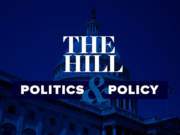This piece originally appeared in National Review on August 9, 2019.
Representative Joaquin Castro, doxing Trump donors on Twitter — “Sad to see so many San Antonians as 2019 maximum donors to Donald Trump. Their contributions are fueling a campaign of hate that labels Hispanic immigrants as ‘invaders’” — has given us that teachable moment.
Laws mandating disclosure of campaign contributions were originally intended to ensure that the contributions were on the up and up, but they have been turned upside down in today’s take-no-prisoners political climate. Politicians now use disclosure to monitor and police the views of American citizens, calling into question the wisdom of allowing government to surveil so much of our political activity.
“I think you’re a scumbag and I f***ing despise everything you stand for,” said one caller who spammed the voicemail of a Trump donor named in Castro’s tweet. “That’s why I’m calling you and filling up your voicemail with a bunch of bullsh*t. So, enjoy that. I will make sure to post this number and extension all over the Internet.” This type of harassment appears to be what Castro hoped for and intended — it is hard to see why else he would have tweeted as he did.
Federal law requires the name, address, occupation, and employer of anyone who gives over $200 to a federal candidate to be published in a government database. The threshold hasn’t been adjusted, even for inflation, in over 40 years. At that level, the law doesn’t just capture big donors — it captures ordinary Americans, too. When Americans who make political contributions find themselves doxxed by a congressman and harassed by anonymous lowlifes, many may decide it’s too risky to support candidates. That would be a real loss for democracy.
Even as disclosure laws have grown more expansive, technology has made them easier to abuse. When the first compulsory disclosure laws were passed in the 1970s, accessing donor information required a person to travel to a specific location and manually sort through the records. Few people took the time to dig up the donations of unknown Americans. By contrast, today it takes only a few clicks from any Internet-connected computer in the world to look up anyone’s donation history.
As a result, donor information is no longer the domain only of responsible journalists. Today an employer or landlord, a bank-loan officer or college-admissions director, an overbearing family or church-community member, or any old nosey neighbor can instantly use and abuse these highly personal records. In a worst-case scenario, donor information offers a roadmap for would-be harassers to target Americans for their beliefs. Even on its best day, disclosure mostly serves up cheap ammunition for partisans to slime their opponents.
The Supreme Court has permitted mandatory disclosure of contributions to candidates, political parties, political-action committees, and super PACs. But historically the Court has protected our right to privacy when we support groups advocating for social change. A unanimous Supreme Court ruled in 1958 that “compelled disclosure of affiliation with groups engaged in advocacy may constitute as effective a restraint on freedom of association” as other forms of censorship. In Buckley v. Valeo (1976), the landmark ruling on campaign-finance laws, the Supreme Court upheld donor-disclosure requirements only after limiting the law’s reach to candidates and political committees.
Representative Castro and others in Congress want to move that line. The so-called For the People Act would invade the privacy of advocacy groups and their supporters by publishing the names of donors and members.
Too many politicians think they have a right to track our political activity. They want to know who is supporting any group or person standing in the way of their agenda: who is funding the grassroots advocacy groups that organize petition drives and protests; the public-interest law firms that challenge unconstitutional laws in court; the think tanks that promote policy solutions to today’s biggest challenges. In short, they want to know what ideas you support, and what groups you join.
And as Castro’s doxing of Trump donors shows, many are willing to use this information to put a target on the backs of Americans. If we do not defend privacy in association, everyone who participates in politics may one day be at the mercy of the social-media mob. Let’s keep transparency for the government, and privacy for the people.














